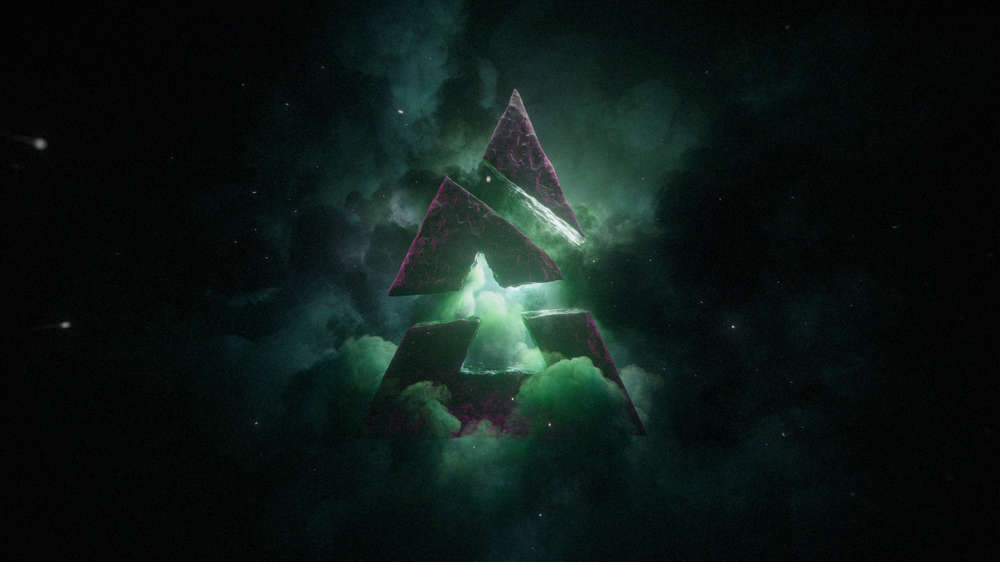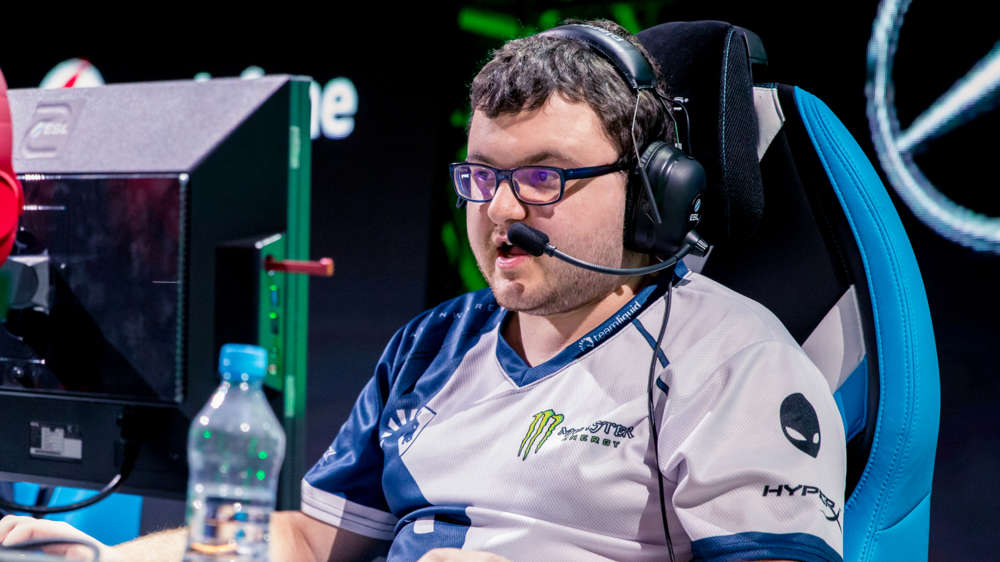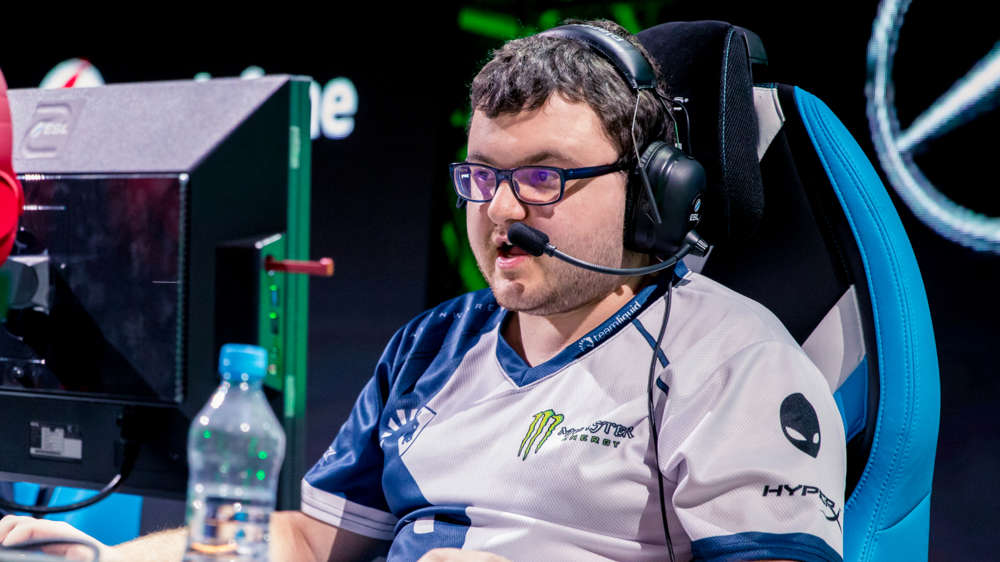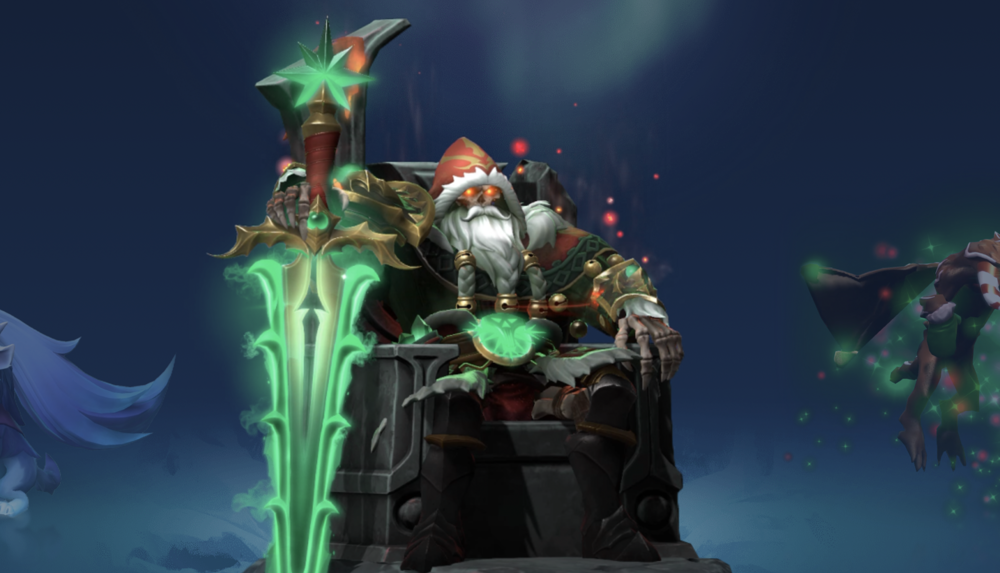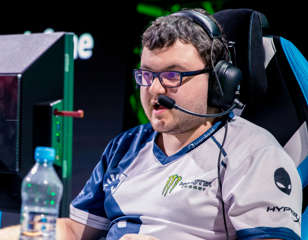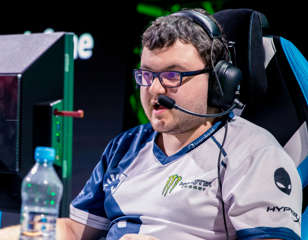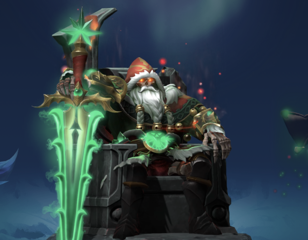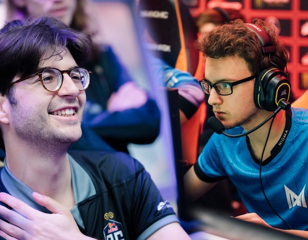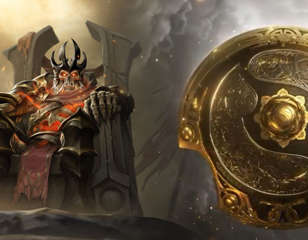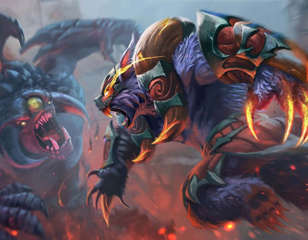The jury is still out on DOTA 2's esports overhaul ft. Insania, Sneyking, TeaGuvnor, ESL & more
Following major changes to the Dota 2 ecosystem, we spoke to ESL, players, coaches, and analysts to see how the collective mindset is shifting.

Jack Marsh
06th May 2024 16:22
Image via Monster Energy
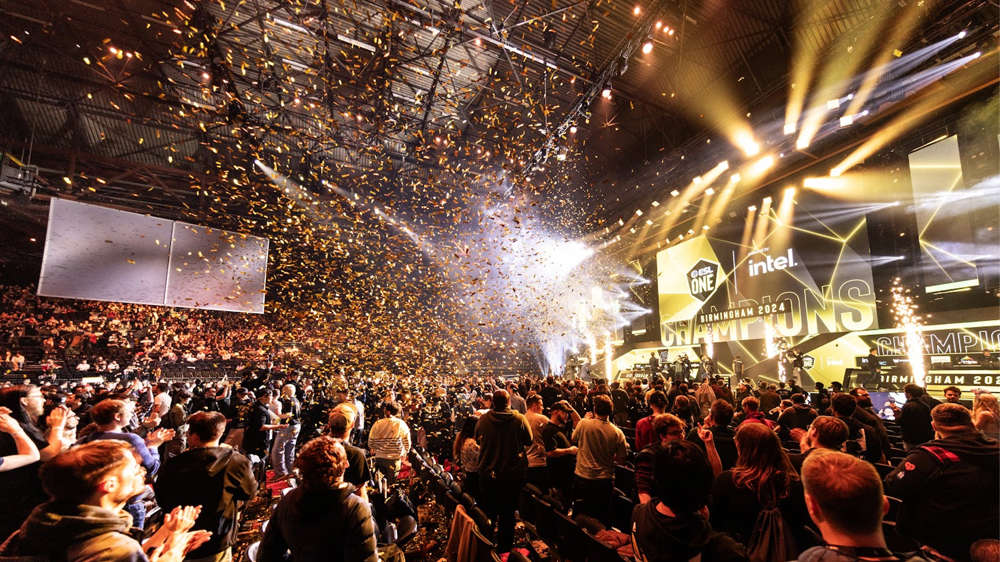
The International has always been the epitome of Dota 2 and esports as a whole.
Regardless of where your thoughts lie about Dota 2 and its bombastic nuance, admirable tactical prowess, and the way it's set apart from the rest of esports, The International has always been a staple of the industry calendar.
Alongside the League of Legends World Championships, and possibly a handful of CS:GO Majors, The International has always been a flagship event, and it all came hand-in-hand with its ludicrous crowd-funded prize pools.
Now though, the Dota 2 ecosystem is changing. TI's funds have been axed, Valve is directing its revenue streams back into the game with a fresh wave of content, and more responsibility is being placed on third-party tournament organisers to create a long-standing structure where Dota 2 can be much more "normal".
But, as the first year of the ESL Pro Tour comes to an end and players have come to terms with The International's changes, has this new structure worked? Is it "healthier"? Do players still see a future in Dota? Or has chopping the crown from the head of TI just left what's left flailing?
Are multiple circuits healthier for Dota 2?

Let's start with Dota 2's esports circuit as a whole. The DPC has never truly been given a chance, and it's quite typical of every esport to see these developer-made circuits come to a halt. You only have to look at what the pandemic did to the Dota circuit and you can see reflections of that in Activision's duo of franchised leagues and more. But there is little point dwelling on the past there. It's over, it's gone.
While the qualification and invites are currently unknown for TI, what we have seen is the formation of the ESL Pro Tour leading to the Esports World Cup and PGL's pledge of eight Majors over three years, showing a commitment to third-party circuits. There's clearly a future for Dota here, with these companies truly believing that they can better the ecosystem that was once dominated by the DPC.
"When we developed the ESL Pro Tour for Dota 2, around a year and a half ago, it was met with great results. Honestly, better than I expected," Director of Game Ecosystems for Dota 2, Shane Clarke, told GGRecon. "The teams, the fans, everyone, they all jumped on board right away and have been extremely supportive."
ESL has spearheaded this new diverse ecosystem with a greater investment in Majors, online events, and a circuit that all leads towards the EWC in Riyadh. Yet even Clarke claimed that PGL's involvement and anything that Valve has planned to elongate the season to take away from the TI-centric nucleus is simply "healthier" for the scene as a whole.
"Whether it's an EFG event, ESL event, PGL, Valve, the players care more, every event is more important to the fans as well, and that makes everything healthier," he added.
"Previously, when an event is a four-hundredth of the prize pool of the next event, you'd be mad to care about it. It created a very, very top-heavy, unbalanced world, and now that's resolved."

Of course, there is one all-encompassing feeling: More Dota, more events, more money, and more everything spread throughout the year. Already, we're up on Tier 1 tournaments throughout the annum, being on six events by the end of May, compared to 2023's three, and 2022's two. 100% more Dota. Inject it.
"I think the shift from to a smaller TI is good," Shopify Rebellion player Jonáš "SabeRLight-" Volek told me at ESL Birmingham.
"It's like a very marathon-oriented system right now where you have to set up a system to be sustainable and to perform for months at a time and not burn out.
"I feel like the majority of money, right now, is in tournaments like this [ESL One Birmingham], with $1 million tournaments on top of your salary. So this system makes you want to do as well as you can in every tournament possible."
Current G2 x iG General Manager, and former journalist/analyst, Jack "KBBQ" Chen agrees.
"It does benefit Dota overall," he said. "You have a more consistent scene and a more consistent ecosystem. Your priority shifts a little bit to different things, not just doing well at this one life-changing tournament.
"In the past, you had a situation where if players did well at TI, it was life-changing, or they made their year at this one tournament. But if you didn't, it almost didn't matter what else they did the rest of the year. That can be a difficult dynamic. It was unique but I think it's nice to move towards a more consistent, in theory, more stable and more diversified scene where you have different tournaments that matter.
"In terms of building long-term stability, it's a good development and it also means that players, ideally, should care more about what's happening year-round."

KBBQ's comments stuck out in my mind when discussing "it almost didn't matter what else they did the rest of the year". Undoubtedly, players would want to find their final form for TI and set themselves up for life. It was unique and it was a crowning centrepiece for the ecosystem, but was it really sustainable for a handful of teams to cash in on one event a year and half-ass the rest? Did teams really hold back on hero comps and strats in other events to bring everything out at TI?
Nonetheless, KBBQ's candid stance did reassure me that Valve's decisions are being supported, and it hasn't been a case of players dropping off in quality and effort even though the money isn't plundered into the globally-watched tournament.
Instead, the ESL Pro Tour and others are already proving to be a success in keeping players motivated, leading to an all-year festival of Dota with storylines cropping up at each event.
Not everyone agrees (as we'll soon get to), but one player who is echoing the same stance as Clarke, KBBQ, and SabeRLight is recent ESL Birmingham champion Jingjun "Sneyking" Wu.
"I think the shift away from being TI as the centrepiece of the whole year is a positive on the scene," he told me. "The hard work is put into the game year-round and the focal point should not just be one tournament but rather the consistency of the players and the teams throughout the whole year."
This comes from a TI winner, and one who won the event as the prize pools began to drop. Yes, he likely made over a million dollars from his 2022 run with Tundra Esports, but there was little disgruntlement on his part that if the TI-centric and infamously enriched circuit was still in play, he could have easily tripled his winnings.
"Having a consistent pro scene and pro tour throughout the whole year rewards teams more than just being good at one tournament. And I think it gives more opportunities and more motivation for people to keep trying and be better," Sneyking added.
But others are divided on TI being demolished as the cornucopia of Dota 2...
Does The International need to set people up for life to be special?

Closing in on The International, rather than the entire ecosystem, the question has to be asked. Now that there is a much smaller cash prize to go alongside hoisting the Aegis of Champions (less than 10% of what it was in 2022), does it water down what The International stands for?
"The thing is, TI was something really, really special," Aydin "Insania" Sarkohi said to me, adding earnest on "was".
To him, as a player who has a third-place finish at TI and a runners-up medal at Riyadh Masters 2023, the thing that made TI so special was the ability to change someone's life in a matter of days. It's not all about earning money for him, as Dota players are "lucky" and "privileged" compared to other esports, but stripping away that transformative bonus that came with winning (or even going the distance to the final), takes the gloss off what was once the biggest event in esports.
"The sad thing about the low prize pool - beyond the fact that everyone wants to get paid and make good money - there was something special about it because it had the prestige of being around for so many years and it was an opportunity to truly change your life, something that only a select few people have been able to achieve," he added.
"I feel like Dota is still in a limbo state. We don't know what's up with TI. Is TI ever going to be what it used to be? Or, is it going to remain what it was last year forever? Then there is the question, what is going to happen with Riyadh? Will the Esports World Cup continue to be the biggest event of the year? Because, if it is, it will take away from TI, and people will shift their focus in that direction."
There lies the big question mark for me, which Insania almost glossed over while undergoing his own cognitive battle.
We're never going to know what truly motivates players, it changes from athlete to athlete. But, under the hypothesis that TI's biggest selling point was the prize fees, does that mean it can be eclipsed when events with bigger pools come along? Does TI, despite its history and status as World Champions fade underneath the Esports World Cup for example?
In that case, you might see Valve take action to preserve TI as the biggest prize pool of the year, not allowing EWC to overtake it, given that they have the power as the client owner. It might already be why the EWC is rumoured to be quite the comedown across the board for individual games' prize pool, and why the Saudi-government-backed Foundation has already pivoted to putting one-third of the $60 million into a team leaderboard which champions the best orgs across all games, rather than just breaking records in each title.

Money undoubtedly plays a role in the motivations, and the instant impact of TI's cuts resonated with Insania and echoed across fans' views too.
"If it was a team winning TI for the first time last year, I think a lot of people would have looked at it like 'sucks to be you', rather than like, 'holy s**t, you won TI, you changed your life'," he added.
"It's not just for pro players, it's the people who watch the games too. Everyone viewed TI as the pinnacle esports event. People who were not into Dota would still watch TI because it was interesting to see which group of five players are truly going to change their lives. I would still like TI to have that aspect to it."
Valve has explained that their decision to cut down on crowdfunding has been to veer the resources and dev power from the battle pass towards the game itself, but that doesn't necessarily mean that crowdfunding is over for good. There's always that possibility of having some kind of bundle (much cheaper than the pass), akin to VALORANT, or esports team packs slash hero skins somewhat similar to LoL, that can allow fans to line the pockets of players who qualify for the event. Low effort and a low price, but still a nice boost to TI's pool to get it back on top.
On the flip side though, money isn't the be-all and end-all, and there are plenty of Dota 2 personalities that will hold and cherish the Aegis trophy as the absolute top prize in Dota, no matter if another event came in splashing "billions"...
The International is the pinnacle and always will be

The International is still there, despite no longer changing players' lives, and the Aegis of Champions trophy is still the most attractive non-monetary prize in Dota.
We're quickly powering through 2024 to the thirteenth The International, as it prepares to come full circle and head back to Europe for the first time since its inaugural 2011 venture in Cologne, as Copenhagen will stage this revitalised and prestigious competition.
According to analyst Robson "TeaGuvnor" Merritt, this year's calendar won't change players' thoughts about the tournament, and the prolonged season will only lead to even more hype around the monumental occasion.
"Lifting the Aegis of Champions means everything", TeaGuv said, with more assertion than I've ever seen anyone speak about a trophy. He paused for a slight moment, as I could see over a decade of history get placed on a scale in his brain while gold coins were flung off the other side.
"You play Dota because you see TI," he continued. "Whether TI has a $5 million prize pool or a $25 million prize pool, lifting the Aegis is the most important thing.
"Of course, for the players, money is important. If a new tournament crops up which has more money then financially they'll love that tournament. But it won't have the same pride, the same internal meaning, the same gravitas. I've spoken to players, all they care about is lifting the Aegis."

We're back to that intrinsic battle between money and meaning again, and TeaGuvnor made no mistake that he was the honourable Ned Stark defending the TI to his last breath. That might sound quirky, but I could see the passion that he had for the tournament.
First and foremost though, TeaGuvnor is a fan whose dream has come true to talk about, analyse, and champion Dota at the most elite level. He didn't win money in efforts to be a player (or not Dota money should we say), but rather just loves this beautifully crafted battle of knowledge, patience, and wit. The epitome of which is The International.
TI isn't just a paycheck for players to joust over, but it's what the fans hold closest to their hearts. That can't be replaced with green paper bills.
"Putting it bluntly, I couldn't give a s**t if a tournament had $7 million or $20 million or whatever, like, for me, it's the journey to TI. TI is my tournament," he continued.
"As a Dota fan, a Dota player, there is nothing that can replace TI.
"If you even put like a f**king billion dollars into a tournament, congrats, you just burnt a billion dollars. It's not TI. TI has so many years of history. The storytelling, the passion, the moments, regions beating other regions, you just can't replace TI."
The viewership tells the same story. Even though The International 2023 had just 15% of the prize pool that 2018 did, it beat the viewership records for both peak concurrent fans and the total hours watched. In fact, 2023, despite having the lowest pool since 2013, peaked as the fourth most-watched Dota event ever. Riyadh Masters barely scratched the surface of this metric, coming in at one-third of the viewers. Indicative huh?
"The World Cup is only held every four years, but it breaks a viewership record every single time because of its status," added Sneyking, which summed up what regards TI was held in for players, when comparing all sporting events.
In-game development clears battle pass investment

Finally, we've got to take a second and realise that Dota 2 is an old game. Old games need help. Counter-Strike needed a whole new title to help refresh the scene, and Dota 2 is exactly the same.
It doesn't mean Dota 3 is needed, but the professional community all seemed to be singing from the same songsheet when I asked them about weighing up the benefits of investing in the game against plundering prize money into the short-term careers of a handful of players.
"The money for TI was generated from the battle pass. They were taking all of the dev attention to create skins, to create a revenue stream. The prize pool of TI wasn't massive because people were supporting the esport or teams like Liquid or OG. They were supporting the pass for skins and then the repercussions would see money go to the teams as well," TeaGuvnor said.
"I prefer the idea that the resources Valve spends should be on the game. We just had Crownfall, a four-act event, and there are three more acts to come, which could be gameplay, an event, or other stuff. None of this was possible if we had a battle pass each year.
"It's a mystery. We're still at a crossroads. Is it worth it? Is it worth having better game content over the Battle Pass? The trade-off is, 'Do we need a big prize pool from Valve for TI to be important?' No. Because TI is special enough."
Most of the players agreed, which surprised me. But I understood that there is a firm (yet unconscious) agreement between Dota 2 athletes know they have been punching for quite some time, and the game that they love and adore needs some massive updates.
"We're in a very privileged spot as Dota players. I talked to some people at Valve and ultimately their goal is to focus on the game rather than some big TI fiasco, which I do think is good," added SabeRLight.
"Ultimately the esport will always exist as long as people are interested in the game."
Dota 2 is changing for the better, but not everyone is on board yet

Just like in every walk of life, change doesn't appeal to everyone. I hate buying new socks and will wear them until I get told I'm "holy". Change can be extremely aggravating.
But I was pleasantly surprised that nobody in the Dota scene had a spoiled attitude at the fact that their privileged and cash-injected championship has been diversified into support for the game and an overall healthier ecosystem.
Even those who preferred TI to be a life-changer agreed that Dota 2 is a better place for having more support throughout the year, and there was a cohesive sense of knuckling down and getting on with the job at hand for each and every player.
The moral juxtaposition between history and money was quite unanimous, as cementing legacies prevailed, evident in most attitudes towards the Esports World Cup eclipsing TI in prizes, but not in status.
Ultimately, Dota 2's step towards "normality" is working, thriving, and accepted - by most.

About The Author
Jack Marsh
Jack is an Esports Journalist at GGRecon. Graduating from the University of Chester, with a BA Honours degree in Journalism, Jack is an avid esports enthusiast and specialises in Rocket League, Call of Duty, VALORANT, and trending gaming news.
